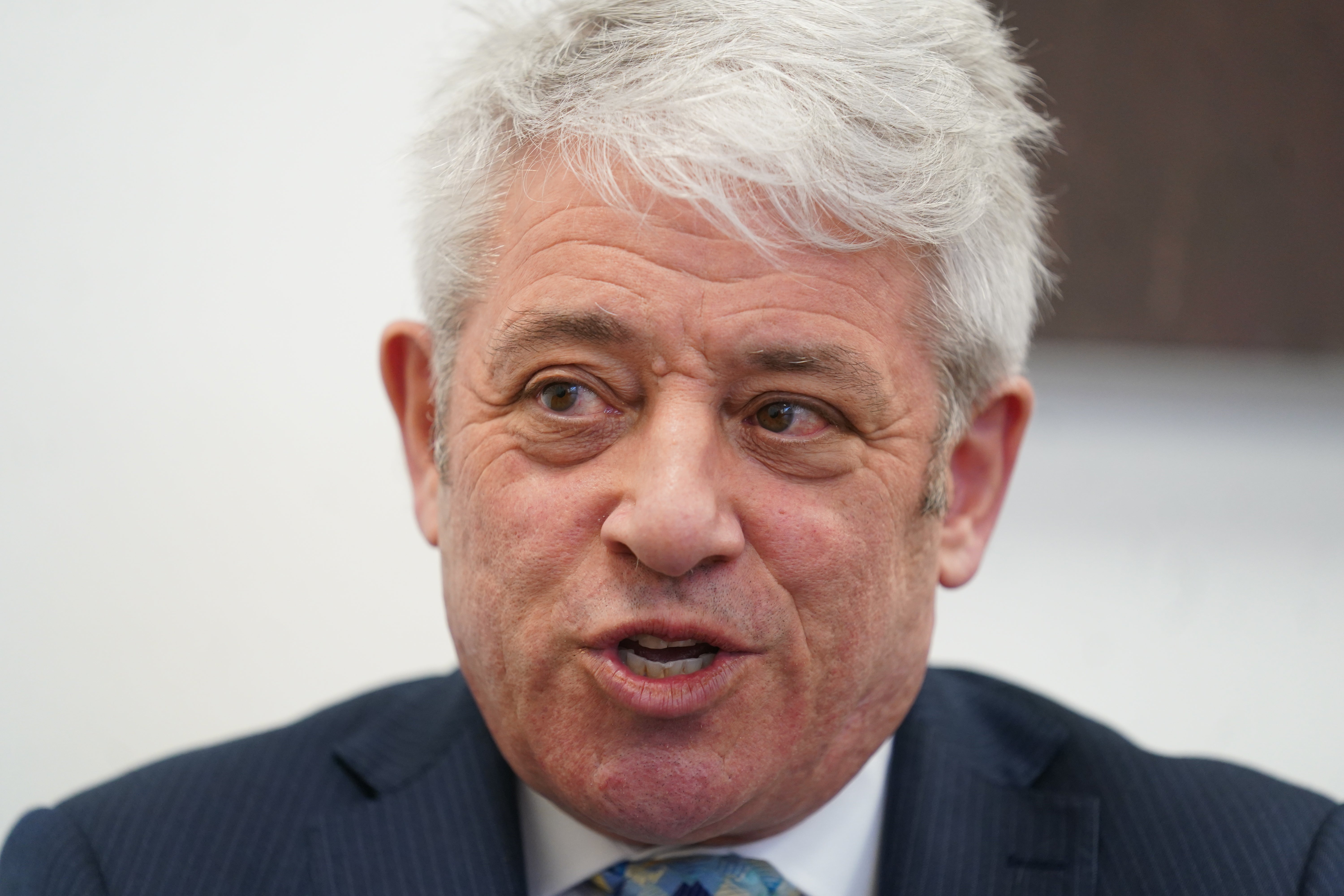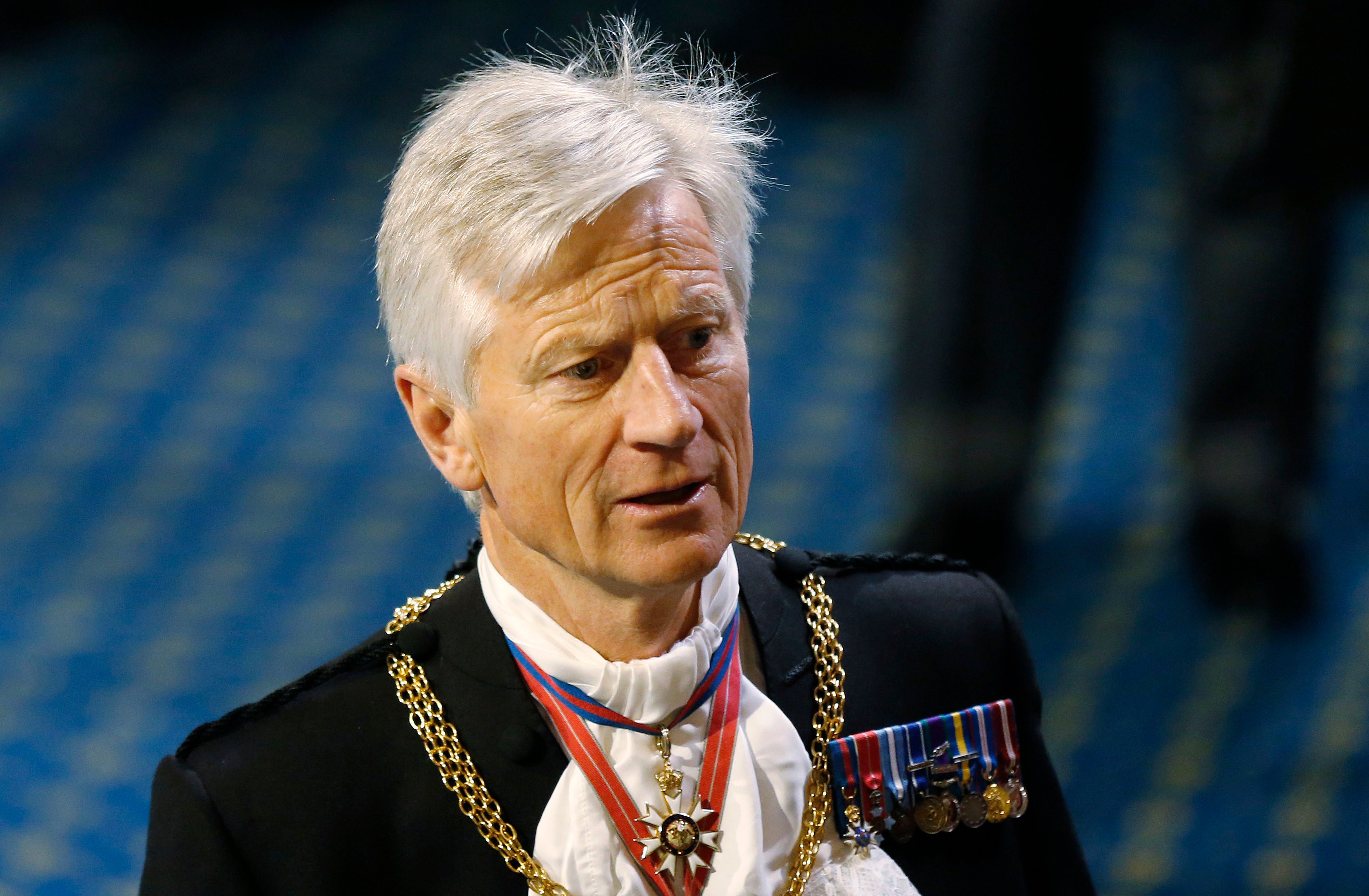
John Bercow is likely to reoffend as he has shown “absolutely no remorse” after an independent report upheld 21 bullying and harassment complaints against him, a former Black Rod has said.
Ex-military commander David Leakey, who filed complaints against Mr Bercow, claimed that for “as long as he does not reform his character” the former Commons speaker is “likely to be a reoffender”.
Mr Leakey, who served as Black Rod from 2011 to 2017, argued that Mr Bercow’s “lack of humility” indicates a “total flaw in his personality” and in his capacity to be a “leader of any sort”.
His comments come as Mr Bercow was banned from holding a parliamentary pass after a report by an independent panel said he was a “serial bully” and a “serial liar” during his years in the speaker’s chair.

The two-year inquiry upheld 21 separate allegations against him made by three Commons officials – former clerk of the Commons Lord Lisvane and private secretaries Kate Emms and Angus Sinclair.
Mr Leakey’s claims were rejected but he gave evidence of Mr Bercow’s bullying of other staff to the inquiry.
Responding to the report’s findings, Mr Bercow insisted: “I don’t believe in faux apologies; I don’t believe in apologising when I don’t think I have anything to apologise for.”
Mr Leakey said it is precisely Mr Bercow’s “lack of humility” that makes him “uniquely disqualified” for any leadership role.
The former Black Rod told the PA news agency: “This has been perfectly disgraceful on his part.
“He has shown absolutely no remorse, no acknowledgement, no contrition whatsoever. And no humility.
“He has shown no possibility that he might have bullied people and affected their lives. And that lack of humility indicates a total flaw in his personality and in his capacity to be a leader of any sort. He is uniquely disqualified.”
For as long as he doesn't reform his character, then he's likely to be a reoffender. It's as simple as that
He added: “For as long as he doesn’t reform his character, then he’s likely to be a reoffender. It’s as simple as that.”
Mr Leakey, who during his time as Black Rod was principally responsible for controlling access to and maintaining order within the House of Lords and its precincts, insisted that Mr Bercow’s innocence plea is not only a “sad reflection on him personally, but also a sad reflection on the House not to have done anything earlier”.
Asked why nobody did anything despite many knowing Mr Bercow’s character, Mr Leakey said there were “political reasons” but also some “power play reasons”.
He said: “The leaders were very reluctant… the leaders of the House, the leaders of the parties, as well as Bercow, were very reluctant to concede that there was a problem that needed a formal process.
“They all thought that they were very good and, if I can put it this way, acting on their honour, which is what MPs are supposed to do. And I think for them to concede that some of their members were not acting on their honour, notably John Bercow, then that would have, as it were, sort of been a self-condemnation.”
Mr Leakey noted that incidents such as the one involving former Conservative minister Owen Paterson exemplify the “sort of culture and sentiment” that “prevented Parliament from implementing” a process.

He said: “There have been lots of incidents. You’ve seen them recently with Owen Paterson, where MPs have tried to exonerate a fellow member.
“And that really was the sort of culture and sentiment that I think prevented Parliament from implementing some sort of process.”
In November, former North Shropshire MP Mr Paterson was found to have broken lobbying rules by Parliamentary Standards Commissioner Kathryn Stone, who said he repeatedly lobbied on behalf of two companies for which he was acting as a paid consultant.
When MPs were asked to approve his recommended 30 sitting-day suspension, the Government launched a botched bid to shelve his punishment and Mr Paterson later resigned.
Mr Leakey said he first became concerned about Mr Bercow’s behaviour “from the first day I met him”, adding: “His problem was he had prejudices against people of certain class and background, and it wasn’t just a prejudice, it was a chippy bigotry towards them.”
It is understood that the Labour Party, which Mr Bercow joined last year having previously been a Tory MP, has suspended his membership pending further investigation.
In a statement following the report’s publication, Mr Bercow said people should not “fall for the establishment spin that I have been banned for life”.
“I can still attend debates with the help of a friendly passholder or go as a member of the public,” warned Mr Bercow, who last represented the constituency of Buckingham.
He said the case against him “would have been thrown out by any court in the land”, as he claimed it was “based on the flimsiest of evidence” and “rooted in hearsay and baseless rumour”.
“It is a travesty of justice and brings shame on the House of Commons,” he added.







